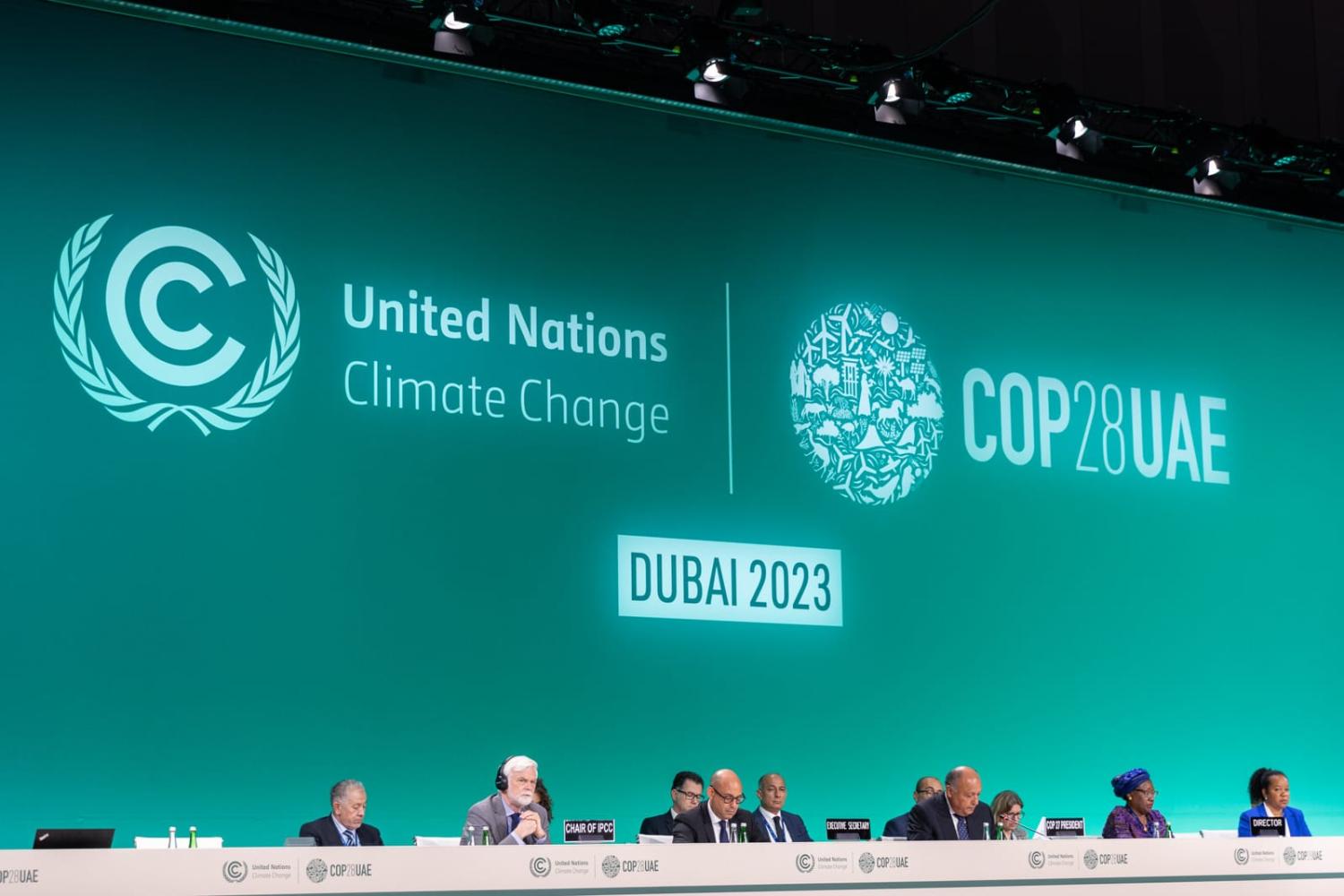China and the United States, as the largest global greenhouse gas emitters, will play a pivotal role in securing consensus at the 2023 United Nations Climate Change Conference, widely known as COP28, now underway in Dubai until 12 December. But strained relations have hindered collaboration.
The Asia Pacific Economic Cooperation (APEC) Summit last month in San Francisco hinted at a breakthrough. US President Joe Biden and his Chinese counterpart Xi Jinping committed to cooperation on new global renewable energy targets and addressing methane and plastic pollution. Nevertheless, differences persist in the realm of phasing out fossil fuel.
At COP28, China and the United States are working together as part of a “global stocktake” to gauge progress toward the shared goal of limiting global warming to 1.5 degrees Celsius above pre-industrial levels, as outlined in the Paris agreement. The success of these joint efforts is crucial for advancing global climate objectives. Already there has been a pledge on the first day of the talks for a new fund to help poorer countries affected by climate disasters, although neither the United States or China are reported to have offered significant support.
More and more US policy towards China is framed as competition where strategic interests do not align, while simultaneously fostering cooperation where mutual interests converge. Climate change is put one of numerous pressing issues where collaboration is seen as a stabilising opportunity, extending to questions on Artificial Intelligence or global health following the Covid-19 pandemic. Unlike the self-contained systems of the Cold War, China is integrated into the American-built economic order, resulting in economic interdependence, with a substantial Chinese diaspora of approximately 5.2 million residing in the United States and around 300,000 Chinese students studying in American universities. This has led various scholars to apply labels to describe the bilateral relations, such as Graham Allison’s “rivalry partners”, Joseph Nye’s “cooperative rivalry” or Ryan Hass’ “competitive interdependence.”
Beijing halted a cooperation with the United States on climate change and other issues after the then House Speaker Nancy Pelosi's official visit to Taiwan last year. Beijing claims sovereignty over Taiwan and strongly objective to this visit as a violation of Washington’s one-China policy. Relations further deteriorated over the “spy balloon” incident in February this year. China argued that it was a weather balloon blown off course, while the US declared the balloon was for surveillance and had it shot down.
The meeting between Biden and Xi at APEC saw the resumption cooperation on climate change, and this has led to hope of helping stabilise relations. China’s economic growth is decelerating with expectations it will fall further in the coming year, which could adversely impact Xi’s domestic standing. Meanwhile, Biden is grappling with foreign policy challenges in Ukraine and the Middle East and would undoubtedly prefer not to see further trouble in the Indo-Pacific region in the run up to a US presidential election next year.
So collaboration on climate change marks a positive step, with each country committed to expediting the deployment of renewable energy to hasten the transition away from fossil fuels. However, Beijing exhibits reluctance to establish a definitive timeline for phasing out coal, citing concerns related to energy security, while navigating an economic slowdown poses a challenge. And the politics within the United States puts a question mark on environmental measures, particularly if there is a change of administration.
The test for now will be the attainment of consensus at the COP28 conference. Debate will be dominated by efforts to set new global objectives for a greener economy and further financial assistance for developing countries grappling with climate change. The positions adopted by United States and China will play a pivotal role in deciding the outcome.

